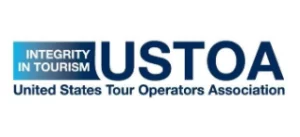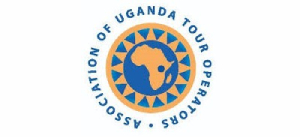Is Travel Insurance Necessary for a Tanzania Safari and Why?
Essential for Safari Safety, A Tanzania safari is a dream adventure for many travelers, offering breathtaking landscapes, diverse wildlife, and unforgettable experiences in iconic destinations like the Serengeti, Ngorongoro Crater, and Mount Kilimanjaro. However, amidst the excitement of planning such a trip, one crucial consideration often overlooked is travel insurance.
Many travelers wonder: Is travel insurance really necessary for a Tanzania safari? The short answer is yes—travel insurance is not just a safety net but an essential part of your trip planning. This article explores the key reasons why travel insurance is vital for a Tanzania safari, the risks involved in safari travel, and the types of coverage you should consider.
1. Medical Emergencies and Evacuation in Essential for Safari Safety
Limited Medical Facilities in Safari Regions
Tanzania’s national parks and game reserves are remote, with limited medical facilities. While major cities like Arusha and Dar es Salaam have decent hospitals, bush camps and lodges in the Serengeti or Tarangire may be hours away from proper medical care.
High Risk of Illness or Injury
-
Wildlife encounters: While rare, animal attacks (such as buffalo or elephant charges) can happen.
-
Malaria and tropical diseases: Tanzania is a malaria-risk zone, and travelers may need emergency treatment.
-
Accidents: Uneven terrain, safari vehicle accidents, or hiking injuries (e.g., on Kilimanjaro) can occur.
Emergency Medical Evacuation
If a severe injury or illness occurs, an air ambulance may be required to transport you to Nairobi (Kenya) or Johannesburg (South Africa), where advanced medical facilities are available. Without insurance, this evacuation can cost 20,000–100,000—financially devastating for most travelers.
Why You Need Coverage:
-
Emergency medical expenses (hospitalization, medications, doctor visits).
-
Medical evacuation (helicopter or air ambulance services).
-
Repatriation (returning home for further treatment if necessary).
2. Trip Cancellations and Interruptions in Essential for Safari Safety
Unpredictable Situations Can Disrupt Travel Plans
Safaris are expensive, often costing 3,000–10,000+ per person. Unexpected events before or during your trip could lead to cancellations or interruptions, such as:
-
Personal emergencies (family illness, job loss).
-
Flight cancellations or delays (common in Africa due to weather or logistical issues).
-
Political unrest or natural disasters (though rare, strikes or extreme weather can affect travel).
Non-Refundable Deposits
Most safari operators require non-refundable deposits (up to 50% of the total cost). Without insurance, you could lose thousands if you cancel.
Why You Need Coverage:
-
Trip cancellation insurance reimburses prepaid, non-refundable expenses.
-
Trip interruption insurance covers unused portions if you must cut your trip short.
3. Lost, Delayed, or Stolen Luggage
Risk of Baggage Issues on Safari
-
Airlines misplacing luggage (common on connecting flights to Tanzania).
-
Theft in cities (pickpocketing in Dar es Salaam or Arusha).
-
Damaged gear (safari vehicles, rough handling of bags in bush flights).
Essential Items You Can’t Afford to Lose
-
Camera equipment (safari photography is a major highlight).
-
Medications (malaria pills, prescriptions).
-
Clothing and gear (safari attire, hiking boots, binoculars).
Why You Need Coverage:
-
Reimbursement for lost, stolen, or delayed baggage.
-
Emergency funds to replace essentials while traveling.

4. Adventure Activities and High-Risk for Essential for Safari Safety
Standard Travel Insurance May Exclude Safari Risks
Many basic policies exclude high-risk activities, such as:
-
Walking safaris (close encounters with wildlife).
-
Hot air balloon rides (popular in the Serengeti).
-
Mountaineering (Kilimanjaro treks require specialized coverage).
Specialized Safari Insurance
You may need an adventure travel add-on or a policy that explicitly covers:
-
Wildlife-related incidents.
-
High-altitude trekking (above a certain elevation).
-
Off-road driving accidents.
Why You Need Coverage:
-
Ensure you’re protected during all safari activities.
-
Avoid claim denials due to “high-risk” exclusions.
5. Financial Protection Against Safari Operator Bankruptcy
Tour Companies Can Go Out of Business
While rare, some safari operators have faced financial difficulties, leaving travelers stranded or without refunds.
Why You Need Coverage:
-
Supplier default insurance can reimburse you if a booked lodge or tour company shuts down.
6. Legal Liability and Third-Party Coverage
Accidental Damage or Injury to Others
If you accidentally cause harm (e.g., a car accident while on a self-drive safari), you could face legal liability.
Why You Need Coverage:
-
Personal liability insurance covers legal costs or compensation claims.
7. Peace of Mind for a Stress-Free Safari
A safari should be about relaxation and adventure—not worrying about “what ifs.” Travel insurance ensures:
-
You’re financially protected against major risks.
-
You can access emergency assistance 24/7.
-
You won’t face unexpected expenses that could ruin your trip.
What to Look for in a Tanzania Safari Travel Insurance Policy
Not all travel insurance is equal. Key features to check:
✅ High medical coverage (at least 100,000–500,000).
✅ Emergency evacuation (including helicopter rescue).
✅ Adventure activity coverage (wildlife encounters, trekking).
✅ Trip cancellation/interruption (covering safari deposits).
✅ Baggage and gear protection (for expensive cameras/binoculars).
✅ 24/7 emergency assistance (with Africa-based support).
Recommended Providers:
-
World Nomads (popular for adventure travel).
-
Allianz Travel Insurance (comprehensive coverage).
-
IMG (International Medical Group) (good for medical evacuation).
Don’t Risk Your Safari—Get Insured
A Tanzania safari is a once-in-a-lifetime experience, but unexpected events can turn it into a financial and logistical nightmare. From medical emergencies in remote areas to lost luggage and trip cancellations, travel insurance is a non-negotiable safeguard.
The relatively small cost of insurance (typically 4–10% of your trip cost) is a worthwhile investment compared to potential losses. Before embarking on your adventure, choose a robust policy tailored to safari risks—so you can focus on the wild beauty of Tanzania without unnecessary worries.
Final Advice:
✔ Compare policies carefully—ensure they cover safari-specific risks.
✔ Declare pre-existing conditions if applicable.
✔ Carry proof of insurance and emergency contact details at all times.
By securing the right travel insurance, you’ll ensure that your Tanzania safari remains an exhilarating and worry-free journey into the wild.









